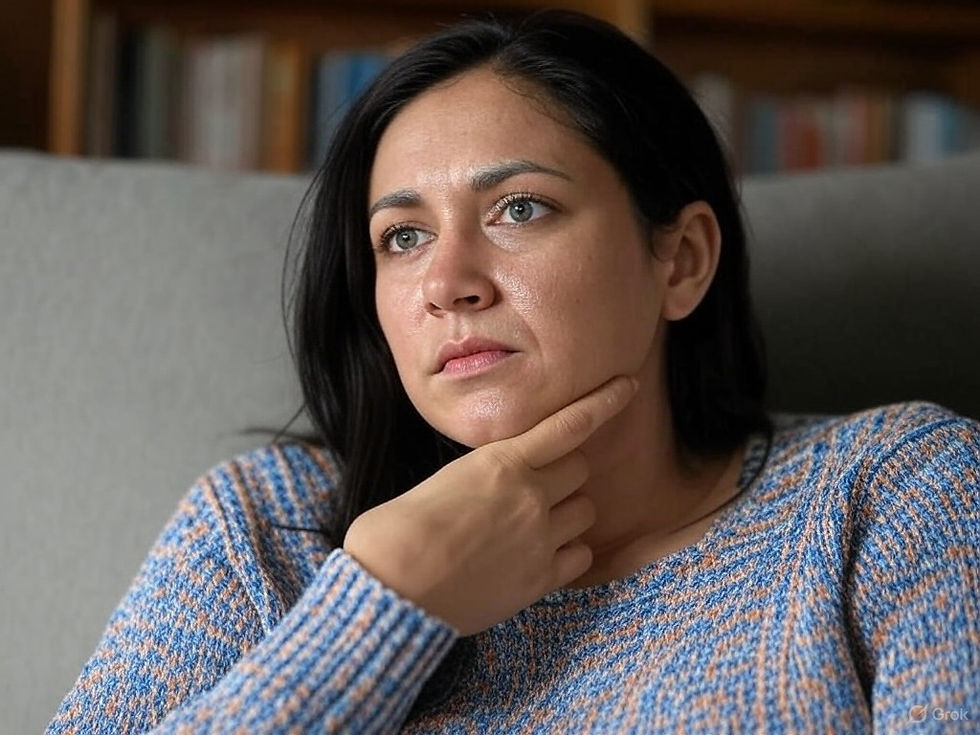Exploring Bioidentical Hormone Replacement Therapy (BHRT) and Hair Loss
- Dr. Miranda

- Oct 29, 2025
- 3 min read

Bioidentical Hormone Replacement Therapy (BHRT) has become a subject of interest for many seeking relief from various symptoms of hormonal imbalance, including hair loss. Here's an in-depth look at how BHRT might affect hair health, especially in the context of aging and hormonal changes:
Understanding BHRT
BHRT involves using hormones that are chemically identical to those your body naturally produces. These hormones aim to restore balance when natural levels decline, commonly during menopause for women or andropause for men. BHRT can be administered through various methods like pills, creams, gels, patches, or pellets.
BHRT and Hair Loss: The Connection
Hormones and Hair:
Estrogen: Plays a role in hair growth by extending the growth phase (anagen) of hair follicles. A decline in estrogen, particularly during menopause, can lead to thinning hair.
Testosterone: In men, high levels of testosterone can convert to dihydrotestosterone (DHT), which is linked to hair loss, especially male pattern baldness. In women, an imbalance can also lead to hair thinning.
Progesterone: Helps balance the effects of estrogen and testosterone. Its decline can indirectly affect hair health.
How BHRT Might Help:
Balancing Hormones: By replenishing hormones to their optimal levels, BHRT can potentially reverse or slow down hair loss by normalizing the hair growth cycle.
Reducing DHT: For men, BHRT can sometimes be tailored to reduce the conversion of testosterone to DHT, thus potentially preventing further hair loss.
Improving Scalp Health: Hormonal balance can lead to better overall scalp health, which is conducive to hair growth.
Potential Benefits of BHRT for Hair Loss
Hair Regrowth: Some individuals report hair regrowth or at least a halt in hair loss after starting BHRT, particularly if the loss was hormone-related.
Improved Hair Quality: Beyond preventing loss, balanced hormones can lead to healthier, stronger hair.
Symptom Relief: Managing other menopausal or andropausal symptoms can indirectly benefit hair health by reducing stress, improving sleep, and enhancing overall well-being.
Considerations and Limitations
Individual Variability: Not everyone will respond the same way to BHRT. Some might see significant improvements in hair health, while others might not notice changes.
Side Effects: Like any hormone therapy, BHRT can have side effects, including potential hair loss in some cases if the hormone levels are not correctly balanced.
Compounded vs. FDA-Approved: Compounded BHRT (custom-made) isn't always regulated like FDA-approved medications, raising concerns about consistency and safety.
Long-Term Effects: There's ongoing debate about the long-term effects of hormone therapy on health, including hair. More research is needed to definitively link BHRT with hair loss prevention or regrowth.
Practical Steps for Using BHRT for Hair Loss
Consultation: Discuss with a healthcare provider specializing in hormone therapy. They can evaluate your hormone levels and determine if BHRT could benefit your hair loss situation.
Hormone Testing: Accurate hormone level assessment is crucial to tailor BHRT to your needs, ensuring you're not over or under-dosed.
Customization: If using compounded BHRT, work with your doctor to customize the hormone blend to your specific needs, potentially focusing on hormones known to impact hair health.
Monitor and Adjust: Regular follow-ups to monitor your hormone levels and hair health are essential. Adjustments might be needed to optimize results.
Combine with Other Treatments: BHRT might work best in conjunction with other hair loss treatments like minoxidil, or lifestyle changes such as diet and stress management.
Conclusion
While BHRT shows promise in helping with hair loss by restoring hormonal balance, it's not a universal solution. Its effectiveness can vary based on individual health, the specific cause of hair loss, and how BHRT is administered. If you're considering BHRT for hair loss, approach it with realistic expectations, thorough research, and under the guidance of a knowledgeable healthcare provider. Remember, BHRT is part of a holistic approach to health; combining it with a healthy lifestyle can offer the best outcomes for both hair health and overall well-being.
"We hope you’re enjoying these posts! At WH-N, we’re passionate about helping our patients find relief and thrive through personalized care. Our approach combines Functional Medicine, Bioidentical Hormone Replacement, targeted supplements, essential vitamins, and expert wellness nutrition guidance. We’re thrilled to see you taking an active role in your health journey—and we’re here to support you every step of the way. Ready to get started? Give us a call at 956-581-2168 to schedule an appointment or visit WellnessHealthGroup.com to learn more about how we can help you feel your best NOW!"








Comments